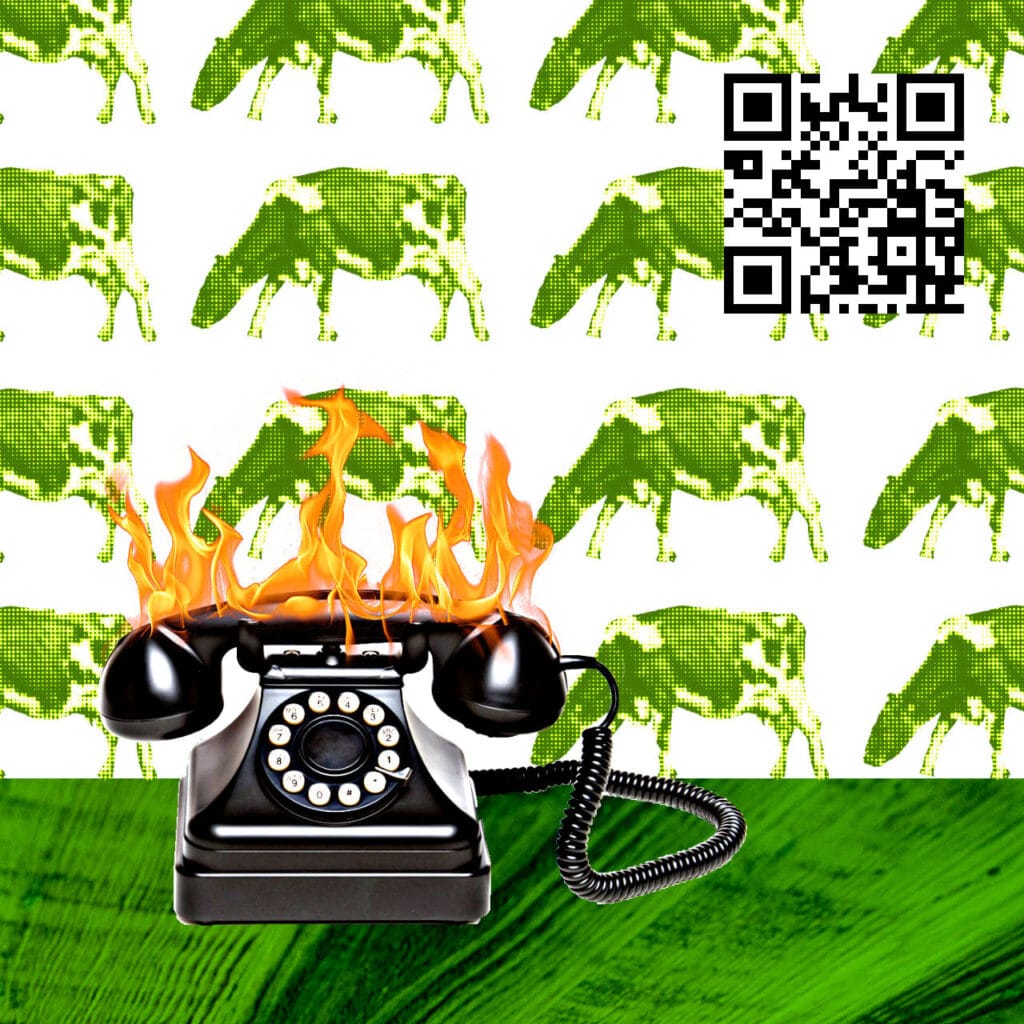In the ever-evolving landscape of technology, the choice of operating system has become more than just a preference; it has become a defining factor that shapes how individuals, workplaces, and society interact with digital tools.
Distinguishing between operating systems such as Apple's macOS, Microsoft's Windows, Google's Android, Apple's iOS, and the open-source Linux is not merely a matter of brand loyalty, but a decision that impacts security, privacy, convenience, and overall user experience. And, it ain't an Apple to understand that.
The article explores the significance of operating systems (OS) in shaping individual, workplace, and societal interactions with technology. It highlights how choosing an OS—such as macOS, Windows, Linux, Android, or iOS—impacts security, privacy, convenience, and user experience, making it more than just a matter of preference.
Individuals align with operating systems based on their needs and familiarity. macOS is favored for its sleek design and ecosystem integration, Windows for its compatibility and customization, Android for its mobile-first approach, and iOS for seamless connectivity. Workplaces, on the other hand, standardize OS choices to enhance productivity, compatibility, and security. macOS dominates creative industries, while Windows is preferred in corporate environments for its enterprise-level tools and security features.
We love how you scroll!
"Phoning Home" or The Personal Connection to Operating Systems
Individuals often align themselves with a particular operating system based on their needs, preferences, and familiarity with the interface.
Whether it's the sleek design and ecosystem integration of Apple's macOS, the widespread compatibility and customization options of Windows, the mobile-first approach of Android, or the seamless connectivity of iOS, each operating system offers unique features and functionalities that cater to different user requirements.
For the very famous 'just works' quote of any Apple's operating system we would agree it's true, and only to a degree, if it survives a test of driving a truck over an iMac. If the thing mentioned does not survive being driven over by a truck, it ain't an Apple.
"Phoning Home" an Operating System Alignment in the "Safe" Workplace
Similarly, workplaces often standardize on a specific operating system to streamline processes, enhance compatibility, and ensure data security.
The choice of operating system in a work environment can influence productivity, collaboration, and IT management practices. For example, a design agency may prefer macOS for its creative tools and user-friendly interface, while a corporate office might opt for Windows for its enterprise-level security features and software compatibility.

Not All Apples Are Equal – A Closer Look at macOS and Windows in Work Environments
The mention of macOS (Apple) and Windows in the paragraph above highlights the distinct roles these two operating systems play in various work environments.
Here's a deeper dive into why only these two are referenced, and why they are the primary choice in different contexts.
- Market Dominance:
- Windows and macOS are the two leading desktop operating systems worldwide. While Windows holds the largest market share, especially in corporate environments, macOS has carved out a significant space, particularly in creative industries.
- Other operating systems, like Linux, while popular in technical or server-based environments, don’t have the same broad appeal for typical office or design work. Their specialized nature makes them less frequently mentioned in this kind of general work environment discussion.
- User Experience and Specialization:
- macOS is renowned in creative and design-focused industries due to its optimized software-hardware integration. Creative professionals, from graphic designers to video editors, choose macOS for its advanced creative tools, intuitive user interface, and seamless ecosystem. It’s widely considered the platform for design-heavy tasks.
- Windows, on the other hand, excels in corporate settings due to its flexibility and compatibility with a wide variety of business software. It provides robust IT management tools and is often preferred for its enterprise-level security features, making it a go-to option for many large organizations.
- Enterprise vs. Creative Tools:
- macOS is tailored for professionals in industries like advertising, media production, and design, where ease of use and software for creativity are paramount. Its ecosystem of software like Adobe Creative Cloud and Final Cut Pro is unmatched for many creative professionals.
- Windows is suited for more traditional business environments, where compatibility with business software (such as Microsoft Office) and IT infrastructure is key. Its extensive support for enterprise tools, including robust security and device management capabilities, makes it the preferred choice for large companies.
- Security and IT Management:
- Windows is often the preferred choice for businesses requiring extensive security and IT management. It supports enterprise-grade security tools, system administration software, and centralized management platforms like Active Directory, making it ideal for managing large-scale IT operations.
- macOS, while known for its out-of-the-box security features like Gatekeeper and FileVault, is generally not chosen for large-scale IT management. However, its security features make it a strong contender in smaller teams or industries where creativity and security are equally important.
Ultimately, macOS and Windows dominate the conversation in work environments because of their specialized advantages. Each operating system brings unique strengths to different sectors, with macOS leading in creative fields and Windows excelling in corporate and enterprise-focused environments.
For example, Windows 10 has been known to collect telemetry data, which includes information about how users interact with the system, application usage, and hardware configurations. This data is sent to Microsoft servers to help the company identify bugs, improve system performance, and provide updates. However, this practice has raised privacy concerns among users, as sensitive information may be transmitted without explicit consent. In response to these concerns, Microsoft has introduced more transparency and control options in subsequent updates, allowing users to manage their data-sharing preferences more effectively.
Continue scrolling ..
The "Phoning Home" Omission – Why Linux Is Left Out of the Work and Home Environment Conversation
The omission of Linux in the main paragraph may seem surprising, given its significant role in the behind-the-scenes operations of many systems, including servers, cloud infrastructure, and even embedded devices.

However, there are several reasons why Linux isn't typically mentioned in the context of work, or by the very least, home environments, especially when discussing operating systems like macOS and Windows. Here are a few key explanations:
1. Role of Linux in Server and Infrastructure Environments
- Linux is the dominant operating system for servers, cloud computing, and supercomputers. It's responsible for the majority of backend operations that power the internet, manage databases, and support large-scale web applications.
- However, in typical office environments (design agencies, corporate offices, etc.), employees are more likely to interact with macOS or Windows rather than Linux directly. This is because Linux is primarily used as a server-side or infrastructure operating system rather than a desktop environment.
- While Linux is crucial for powering the systems behind websites, databases, and services, it’s not typically the operating system that most employees or end-users work with day-to-day.
2. Linux’s Presence in Niche or Specialized Roles
- Linux is widely used in technical, scientific, and development environments, particularly by software developers, system administrators, and IT professionals. Many programmers, data scientists, and network engineers use Linux as their primary operating system for its flexibility, security, and open-source nature.
- However, these roles represent a smaller subset of the workforce, and in the context of general workplace productivity and collaboration (as described in the main paragraph), Linux doesn’t have as prominent a presence as Windows or macOS. The majority of non-technical employees in most industries are more familiar with the graphical user interfaces of Windows or macOS, rather than the more code-heavy or terminal-based nature of Linux.
3. User Experience and Software Compatibility
- Windows and macOS provide highly polished graphical user interfaces (GUIs) and support a wide range of consumer and business-oriented applications. In contrast, Linux distributions (such as Ubuntu, Fedora, or CentOS) tend to be more specialized and can require more technical knowledge to use effectively.
- Although Linux offers a variety of desktop environments (such as GNOME or KDE), the user experience is often considered less polished and more geared toward users comfortable with customization, the command line, and open-source software. As a result, non-technical users in corporate and creative environments are less likely to choose Linux for daily work tasks.
- Windows and macOS have robust support for mainstream software like Microsoft Office, Adobe Creative Suite, and other widely-used business tools, which is why these operating systems dominate in the environments described in the original paragraph.
4. Linux in IT Management and Development
- While Linux is essential for managing large IT infrastructure (e.g., servers, databases, cloud platforms), it's less commonly seen on employees' desktops, which are the focus in the main paragraph. Most organizations choose Windows or macOS for their end-users, while Linux often runs in the background as part of server farms or virtualized environments.
- Moreover, many organizations may rely on Linux for backend operations but use other systems (like Windows or macOS) for front-end work, as these are more user-friendly and compatible with office software suites. Linux is thus seen more as a behind-the-scenes powerhouse rather than a tool for daily office tasks or creative work.
5. Open-Source Nature of Linux
- Unlike macOS or Windows, Linux is an open-source operating system, and it's often customized or tailored for specific uses. Many businesses and organizations build their own Linux distributions to fit their infrastructure needs. This makes Linux highly adaptable and powerful, but also means it isn’t a one-size-fits-all solution for the general office or design environments mentioned in the paragraph.
- The flexibility and open-source nature of Linux appeal to businesses looking for custom solutions or cost-effective IT infrastructure, but again, this is outside the scope of the average workplace discussed in the paragraph, which focuses on user-facing tools and environments.
While Linux is incredibly important behind the scenes—powering web servers, databases, cloud infrastructure, and specialized environments—its role as a desktop operating system in mainstream workplaces is limited compared to macOS and Windows. For this reason, Linux often doesn’t make an appearance in discussions about work environments focused on end-user productivity and collaboration. Instead, macOS and Windows are emphasized because they are the systems most commonly used by employees in creative and business environments for tasks like document editing, design, and general office work.
"Phoning home" - Beyond individual preferences and workplace considerations
Beyond individual preferences and workplace considerations, the core values and historical significance of operating systems play a vital role in shaping the tech landscape.

Apple's macOS, known for its emphasis on design aesthetics and user experience, has set new standards for intuitive computing. Microsoft's Windows, with its widespread adoption and continuous evolution, remains a cornerstone of personal and professional computing. Google's Android dominates the mobile market with its open-source platform and extensive app ecosystem. Apple's iOS powers the company's mobile devices with a focus on performance and privacy. Linux, as a community-driven operating system, stands out for its flexibility, security, and customizability.
In the fictitional scenario described, Apple's "phoning home" practice is intended to enhance security by alerting users to potential unauthorized access to their accounts. However, it is important to consider how this practice could inadvertently assist scammers in certain situations.
If a cybercriminal successfully gains access to an Apple ID and the associated email account, they might be able to intercept the notifications sent by Apple. For example, if Apple sends a push notification or email alerting the legitimate user about suspicious activity, the scammer could take advantage of this by:
- Changing the Email Address: If the scammer has access to the account, they could change the email address associated with the Apple ID to prevent the legitimate user from receiving notifications.
- Resetting the Password: The scammer could also reset the password using the notification as a prompt, effectively locking the legitimate user out of their account.
- Exploiting User Confusion: If the legitimate user receives a notification but is unsure whether it is legitimate (especially if they are not aware of the breach), they might inadvertently provide additional information or take actions that could further compromise their security.
In this context, while Apple's "phoning home" practice is designed to protect users, it can be exploited by scammers if they have already gained access to the user's account. This highlights the importance of robust security measures, such as two-factor authentication, which can provide an additional layer of protection against unauthorized access, even if the scammer has the Apple ID and password.
We love how you scroll! Scroll still!
Empowering Privacy: Balancing Control and Assistance in Operating Systems
When discussing how "phoning home" relates to the use of an operating system, we refer to the built-in mechanisms within the OS that connect to external servers or services for various purposes, such as checking for updates, collecting telemetry data, or implementing remote management capabilities.
While these connections can serve legitimate functions like enhancing security or improving user experience, they can also raise privacy concerns depending on the extent of data collection and sharing.
Some sources confirm that Apple’s approach to stolen Apple IDs is not a phishing practice but rather a security framework that emphasizes user responsibility. While this may feel burdensome to users, it aligns with industry standards for account security. Apple provides tools, education, and support to help users secure their accounts and recover them if compromised. However, the ultimate responsibility for safeguarding an Apple ID lies with the user, as stated in Apple’s terms and conditions. These are questionable as the terms are set and might potentially lead to abuse or just the reverse of what is stated under the terms and circumstances.
Let's explore how different operating systems, including Windows, Linux, Apple, Android, and Chromium, "phone home" and to what degree it may impact individuals, workplaces, or broader society:
- Windows:
- Phoning Home: Windows operating systems have been known to collect telemetry data, including system diagnostics, usage statistics, and crash reports, to help Microsoft improve the OS and provide updates.
- Impact: Individuals may have concerns about their privacy and data security if sensitive information is sent to Microsoft servers without clear consent. Workplaces managing multiple Windows devices may need to consider the implications of telemetry data collection for confidential business information.
- Example: Windows 10 had faced criticism for its aggressive telemetry practices, prompting Microsoft to introduce more transparency and control options for users in subsequent updates.
- Linux:
- Phoning Home: Linux distributions vary in their data collection practices, with some being more privacy-conscious than others. Certain distributions may collect anonymous usage statistics or error reports to enhance user experience.
- Impact: The degree of impact on individuals, workplaces, or broader society largely depends on the specific Linux distribution being used and its data handling policies.
- Example: Ubuntu, one of the most popular Linux distributions, collects some anonymized data like hardware information and user interactions unless users opt out during installation. This data helps Ubuntu developers prioritize features and improvements.
- Apple:
- Phoning Home: Apple operating systems, including macOS and iOS, collect anonymized usage data to improve performance, identify bugs, and deliver personalized services like Siri suggestions.
- Impact: Individuals using Apple devices may benefit from enhanced user experiences based on data-driven features, but concerns about data privacy and security remain.
- Example: iOS devices may send usage data to Apple servers to power features like "Handoff" for seamless device integration, potentially impacting how individuals interact with their Apple ecosystem.
- Android:
- Phoning Home: Android OS, developed by Google, collects various types of data, including location information, app usage statistics, and device diagnostics, to improve services like Google Maps and personalize user experiences.
- Impact: Individuals using Android devices may experience tailored recommendations and location-based services, but concerns over data privacy and advertising targeting persist.
- Example: Google Play Services on Android devices regularly connects to Google servers to update apps, deliver notifications, and synchronize user data, affecting how users interact with Google's ecosystem.
- Chromium:
- Phoning Home: Chromium OS, the open-source project behind Chrome OS, may send usage statistics, crash reports, and system information to Google to enhance the operating system's performance and security.
- Impact: Individuals and organizations using Chromium OS may benefit from timely updates and security patches, but concerns about data sharing with Google could influence adoption decisions.
- Example: Chromebooks, running on Chromium OS, may periodically send diagnostic and usage data to Google servers, enabling Google to improve the OS and provide better services to users.
I do not know anything. If I would I would curl myself! Take the 'curl' for example. He said.
The extent to which operating systems "phone home" and the resulting impact on individuals, workplaces, or broader society vary based on data collection practices, transparency, and user control options. Understanding and evaluating these practices can help users make informed decisions about their digital privacy and security when choosing an operating system that aligns with their preferences and values.
The concept of "calling home" in the context of operating systems refers to the practice of devices sending data back to their manufacturers or developers. While this can be part of routine system updates, diagnostics, or user analytics, excessive "phoning home" can raise concerns about privacy, data security, and potential surveillance. By constantly communicating with external servers, devices may inadvertently share sensitive information, usage patterns, or behavioral data without the user's explicit consent.
The term 'curl' can refer to two different contexts based on your question:
In Computing (Terminal Command):
curl is a command-line tool used to transfer data to or from a server using various protocols, including HTTP, HTTPS, FTP, and more. It is commonly used in terminal windows to make requests to web servers and retrieve data. For example, you can use curl to fetch the contents of a webpage or to send data to a server.
Basic Usage:bash
Copy Code
curl http://example.com
This command retrieves the HTML content of the specified URL.
Common Options:
-X: Specify the request method (GET, POST, etc.).
-d: Send data in a POST request.
-H: Add headers to the request.
In the Quote Context:
The quote you provided seems to use curl metaphorically. The phrase "I would curl myself" suggests a sense of self-reflection or introspection. In this context, "curl" could imply curling up or retreating inward, perhaps indicating a desire to understand oneself better or to protect oneself emotionally.
The speaker's statement, "I do not know anything," followed by the metaphorical use of "curl," suggests a feeling of confusion or lack of knowledge, and the desire to "curl" could symbolize a wish to retreat from the complexities of understanding or to seek comfort in self-awareness.Summary
curl in Terminal: A tool for transferring data over various protocols.
curl in the Quote: A metaphor for introspection or self-reflection.Understanding the implications of "phoning home" is crucial in assessing the levels of dependency, data collection, and potential risks associated with different operating systems.
Operating systems that prioritize user privacy, transparency, and data encryption offer a more secure and trustworthy environment for individuals, businesses, and society as a whole. By being aware of how operating systems handle user data, communicate with external servers, and protect sensitive information, users can make informed decisions about their digital footprint and data security.
Therefore, the choice of operating system goes beyond mere functionality; it reflects values, priorities, and expectations in the digital realm.
Whether you're a Mac enthusiast, a Windows loyalist, an Android aficionado, an iOS devotee, or a Linux advocate, understanding the core principles and implications of your preferred operating system is essential in navigating the ever-changing landscape of technology.
By prioritizing security, privacy, and convenience in your digital interactions, you can harness the power of technology while safeguarding your personal information and digital rights.
- The Pragmatic Path to Digital Sovereignty: A Comprehensive Guide to De-Googling with Nextcloud on Stock Android
- The Replicant’s Ledger: Wi*dows 11, Digital ID, and the Architecture of Corporate Control
- The Archive Fee: The Empire Strikes Back with a Paywall Against the Act of Self-Remembering
- Reclaiming the Digital Frontier: Engineering Expert-Level Digital Autonomy with Self-Hosted Mail and Nextcloud
- The Siren Song of the Algorithm: Why AI Chatbots are a Dangerous Delusion in Mental Health Care
The Very Importance of "Phoning Home" and the Extra-Terrestrial
In the context of the movie E.T. the Extra-Terrestrial, the concept of "phoning home" is a central theme that carries significant emotional weight and narrative importance.
"In the journey of connection, we discover that home is not just a place, but a feeling of belonging and understanding. Whether through the stars or the circuits of technology, the call to 'phone home' reminds us of our shared humanity and the bonds that unite us, even in the face of fear." - E.T.'s Quote of Wisdom or of Fear?
Here’s an explanation of its importance and the emotional consequences associated with it:
Importance of "Phoning Home"
- Connection to Home:
- For E.T., "phoning home" symbolizes his desire to reconnect with his home planet and his family. It represents hope and the longing for belonging, which is a fundamental aspect of his character. Throughout the film, E.T. is depicted as a gentle and innocent being who is stranded on Earth, and his ability to communicate with his home is crucial for his survival and emotional well-being.
- Plot Development:
- The act of "phoning home" drives the plot forward. E.T. needs to establish contact with his spaceship to return home, and this quest becomes a central focus of the story. The urgency of this communication creates tension and propels the narrative, as the characters work together to help E.T. achieve his goal.
- Symbol of Friendship:
- The relationship between E.T. and the young boy, Elliott, is deepened through the act of "phoning home." Elliott and his siblings assist E.T. in his efforts, showcasing themes of friendship, loyalty, and compassion. Their bond grows stronger as they work together, highlighting the importance of connection and support in times of need.
Emotional Consequences
- Longing and Isolation:
- E.T.'s desire to "phone home" evokes feelings of longing and isolation. As he navigates life on Earth, he experiences homesickness and a sense of alienation from his own kind. This emotional struggle resonates with viewers, as it reflects universal feelings of being lost or disconnected from one’s roots.
- Fear of Separation:
- The potential for E.T. to be captured by government agents adds a layer of fear and urgency to the narrative. The emotional stakes are high, as both E.T. and Elliott fear losing each other. This fear of separation amplifies the emotional intensity of the story, making the eventual reunion with E.T.'s family even more poignant.
- Joy and Sadness:
- The climax of the film, when E.T. finally manages to "phone home," is filled with a mix of joy and sadness. While there is relief and happiness in the prospect of E.T. returning home, there is also a profound sense of loss for Elliott and his family, who have formed a deep bond with E.T. This duality of emotions—joy for E.T.'s return and sadness for the impending farewell—creates a powerful emotional impact.
- Growth and Acceptance:
- The journey of helping E.T. "phone home" leads to personal growth for Elliott and his siblings. They learn about empathy, sacrifice, and the importance of connection. The emotional consequences of their experiences shape their understanding of love and friendship, leaving a lasting impression on their lives.
E.T. and A.I.: Opposites or Allies?
- E.T. as a Symbol of Innocence and Connection: E.T. represents the idea of empathy, understanding, and the importance of emotional connections. His journey emphasizes the value of compassion and the bonds that transcend differences.
- A.I. as a Symbol of Advancement and Fear: In contrast, AI often embodies the potential for both incredible advancements and significant fears. While AI can enhance our lives and improve communication, it also raises concerns about autonomy, ethics, and the potential for misuse.
In E.T. the Extra-Terrestrial, "phoning home" serves as a crucial narrative device that encapsulates themes of connection, belonging, and the emotional complexities of relationships. The emotional consequences of this act resonate throughout the film, highlighting the universal human experiences of longing, fear, joy, and growth. The film ultimately conveys a message about the importance of love and connection, transcending the boundaries of species and worlds.
User Notifications and Account Security: The 'Phoning Home' Mechanism
Understanding Terms and Circumstances in a Broader Context
The concept of "terms and circumstances" extends beyond the specific agreements of individual companies like Apple.

It encompasses a wide range of factors that influence how terms and conditions are formulated and enforced across various operating systems, home and work environments, and governmental regulations. This broader perspective is essential for understanding the implications of user agreements in a global context.
A Honorary Mention of Cultural Differences: Different cultures may have varying expectations regarding privacy, security, and user rights. Companies operating internationally must adapt their terms and conditions to align with local customs and legal requirements, which can complicate compliance and enforcement.
But more on that in the next upcoming article, titled: “Know Yourself” (Γνῶθι σαυτόν). Thank you for scrolling!

DR SPACEQUIRE NOW with JOHNNY MAGRITT(e) APPLESEED.PRO and the band:
Determine Your Course
If you require additional assistance feel free to reach out to our intelligence departments via booking a consultation herein. For a comprehensive analysis or to introduce yourself in a unique way, consider sharing a full Apple ID log. However, time is of the essence, and the effectiveness of this action remains uncertain. Act swiftly to address your IT needs! 🚀 #ITSolutions #TechSupport #InnovationInProgress #johhnyappleseedpro

